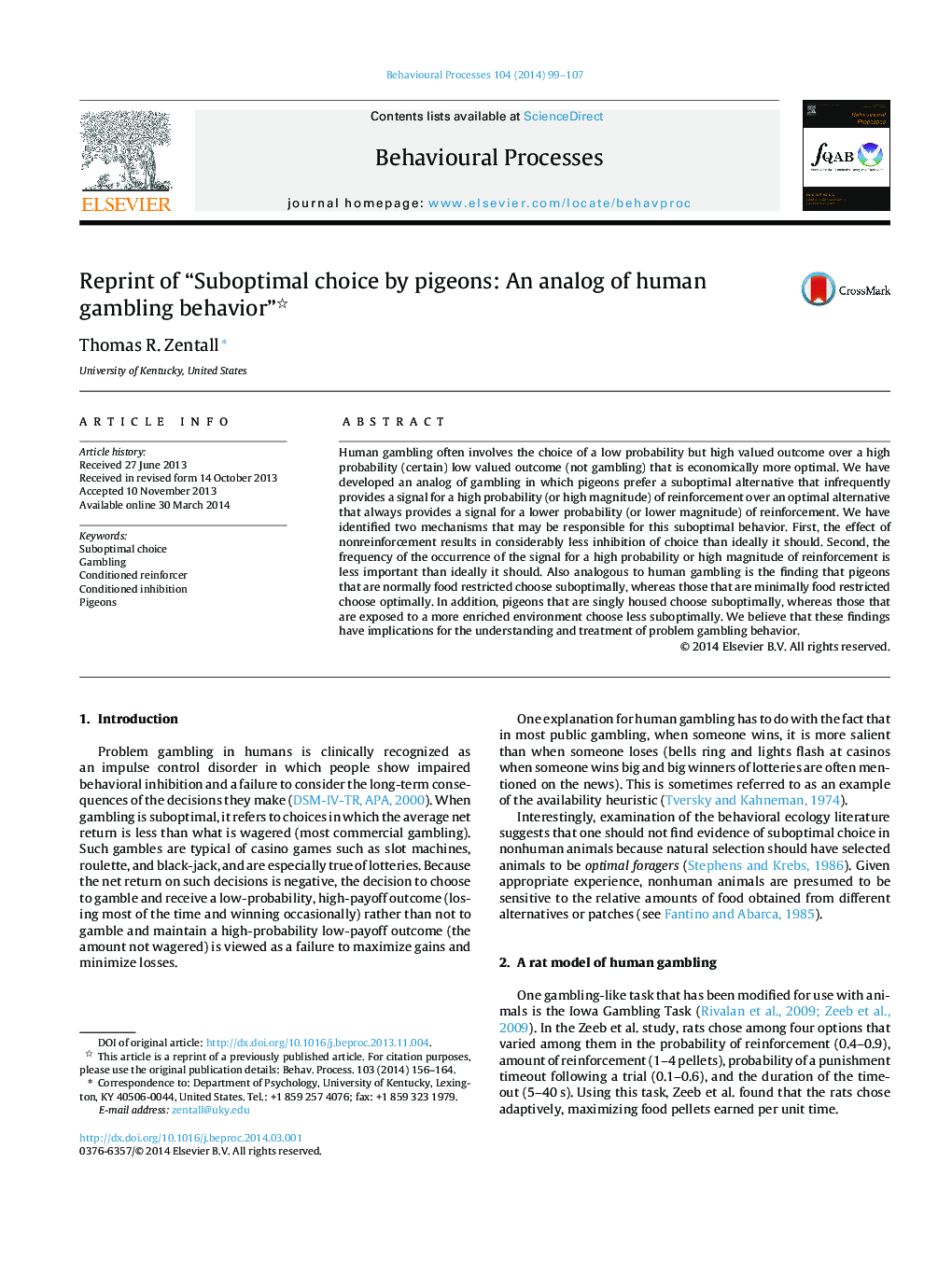| Article ID | Journal | Published Year | Pages | File Type |
|---|---|---|---|---|
| 2426762 | Behavioural Processes | 2014 | 9 Pages |
•A pigeon model of human gambling behavior.•As with human gambling losses play less of a role than they should.•As with human gambling low frequency of wins plays less of a role than it should.
Human gambling often involves the choice of a low probability but high valued outcome over a high probability (certain) low valued outcome (not gambling) that is economically more optimal. We have developed an analog of gambling in which pigeons prefer a suboptimal alternative that infrequently provides a signal for a high probability (or high magnitude) of reinforcement over an optimal alternative that always provides a signal for a lower probability (or lower magnitude) of reinforcement. We have identified two mechanisms that may be responsible for this suboptimal behavior. First, the effect of nonreinforcement results in considerably less inhibition of choice than ideally it should. Second, the frequency of the occurrence of the signal for a high probability or high magnitude of reinforcement is less important than ideally it should. Also analogous to human gambling is the finding that pigeons that are normally food restricted choose suboptimally, whereas those that are minimally food restricted choose optimally. In addition, pigeons that are singly housed choose suboptimally, whereas those that are exposed to a more enriched environment choose less suboptimally. We believe that these findings have implications for the understanding and treatment of problem gambling behavior.
